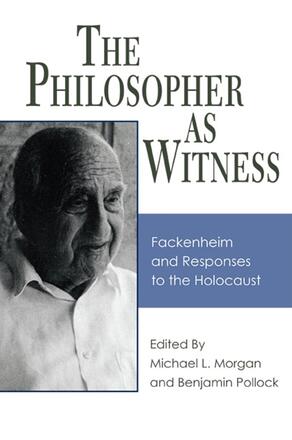
The Philosopher as Witness
Fackenheim and Responses to the Holocaust
Alternative formats available from:
Responses to Fackenheim’s reflections on the centrality of the Holocaust to philosophy, Jewish thought, and contemporary experience.
Description
Emil Fackenheim (1916–2003), one of the most important Jewish philosophers of the twentieth century, called on the world at large not only to bear witness to the Holocaust as an unprecedented assault on Judaism and on humanity, but also to recognize that the question of what it means to philosophize—indeed, what it means to be human—must be raised anew in its wake. The Philosopher as Witness begins with two recent essays written by Fackenheim himself and includes responses to the questions that Fackenheim posed to philosophy, Judaism, and humanity after the Holocaust. The contributors to this book dare to extend that questioning through a critical examination of Fackenheim's own thought and through an exploration of some of the ramifications of his work for fields of study and realms of religious life that transcend his own.
Michael L. Morgan is Chancellor's Professor of Philosophy and Jewish Studies at Indiana University. He is the author and editor of many books, including A Holocaust Reader: Responses to the Nazi Extermination and Beyond Auschwitz: Post-Holocaust Jewish Thought in America. Benjamin Pollock is Assistant Professor of Religious Studies at Michigan State University.
Reviews
"This collection is in many ways a Festschrift for the late Jewish philosopher Emil Fackenheim … The collection does him honor as one of the twentieth century's leading Jewish philosophers and as a model for philosophic practice." — Journal of Ecumenical Studies
"Morgan and Pollock have allowed the contributors to address, in an astonishingly thought-provoking and coherent way, three central and urgent themes in contemporary philosophy, theology, history, literature, Judaism, and Christianity: What are we to do and think about the Holocaust? What is the importance of the state of Israel for Jews and Judaism, and for modern Jewish history and philosophy? In what philosophic premises is Fackenheim's thought rooted, and what are their implications?" — Kenneth Hart Green, editor of Jewish Philosophy and the Crisis of Modernity: Essays and Lectures in Modern Jewish Thought